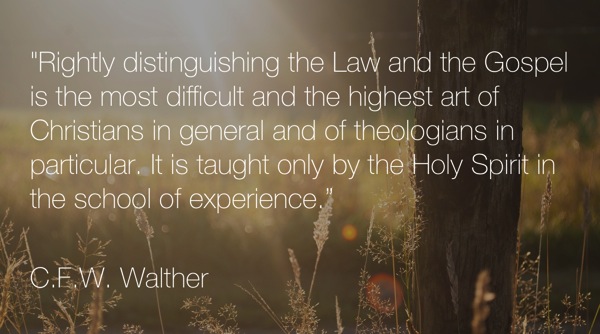What do you do when you’re a leader and you have nothing left to give?
What happens when you are the pastor, the parent, or the friend who has hit a season where you are frustrated, burnt out, and ready to give up?
Viewing entries in
Ministry
What do you do when you’re a leader and you have nothing left to give?
What happens when you are the pastor, the parent, or the friend who has hit a season where you are frustrated, burnt out, and ready to give up?
There’s a legend about an African tribe called the Himba.
In this tribe each child has a unique song. When a tribe learns that a woman is pregnant, the tribe will go out into the wilderness and come back with a song that is unique to the child in the womb.
 I recently got the chance to talk to Jon Dansby, one of the pastors at the Austin Stone Community Church in Austin, Texas. Austin Stone is a community centered on the person and mission of Jesus. I first heard Jon speak at the Lutheran Hour Conference in Detroit and immediately wanted to hear more about what he had to say about being a missionary in our culture.
I recently got the chance to talk to Jon Dansby, one of the pastors at the Austin Stone Community Church in Austin, Texas. Austin Stone is a community centered on the person and mission of Jesus. I first heard Jon speak at the Lutheran Hour Conference in Detroit and immediately wanted to hear more about what he had to say about being a missionary in our culture.
Jon is passionate about equipping people to delight in the Gospel so much that they are sent on mission for God. In a day and age where it has become abundantly clear that we are often foreigners in our own culture, we have an important task of cultivating a missionary mindset within our own congregations.
Subscribe on iTunes or Stitcher or download directly.
Note: The Everyday Leadership Podcast is now in what I’d consider a beta phase. I’m working out the kinks and trying to learn about the medium of podcasting. My goal in this is simply trying to create the podcast I’d like to listen to. Let me know what you think by commenting or leaving a review on iTunes.
“We’re asking our lost friends to be missionaries more than we are willing to be missionaries."
“We might as well start selling missional shoe-laces.”
“The Christian community is the single most persuasive argument for the Christian faith.”
“Missional communities are just communities that are on mission to demonstrate and declare the Gospel.”
“We need a third place for Christians to gather that is for the sake of mission… we want them to gather for community and gather again for mission."
 Vision. Churches, organizations, non-profits, and even sometimes families all talk about vision. And these conversations around vision are often, although not exclusively, helpful. As Christians, we believe that the God is at work in this world both in the work of believers and unbelievers. Because of this, there is a lot that we can learn about the organization of a congregation and leadership from those who have no interest or appreciation for Church.
Vision. Churches, organizations, non-profits, and even sometimes families all talk about vision. And these conversations around vision are often, although not exclusively, helpful. As Christians, we believe that the God is at work in this world both in the work of believers and unbelievers. Because of this, there is a lot that we can learn about the organization of a congregation and leadership from those who have no interest or appreciation for Church.
And vision is a common business practice and strategy. And so it is helpful consider, is vision-casting Biblical? And if so, what should it look like in our churches?
It depends.
If your pastor seems to imply that he has some direct revelation from God that has been given to him outside of Scripture, no. It is unbiblical and I’d be a little worried about what he might say. But if vision-casting is nothing more than looking towards the future and stating a preferred future (which is also given and guided by God through people in their vocations), it is absolutely does not contradict what the Bible teaches.
Here is how Jim Collins defines “vision” in organizations.
Yet vision is one of the least understood-and most overused-terms in the language. Vision is simply a combination of three basic elements: (1) an organization’s fundamental reason for existence beyond just making money (often called its mission or purpose), (2) its timeless unchanging core values, and (3) huge and audacious—but ultimately achievable—aspirations for its own future
As our churches are led, they should certainly be led with this kind of vision.
But this doesn’t mean that the pastor is seeking some unique word from God where God shows up in a miraculously way telling them how to build the next mega-church. Instead, leading a congregation with vision ultimately comes from knowing the Scripture and knowing the culture you are trying to reach.
Vision is simply aligning the congregation around a shared ideal for the sake of the people you are trying to reach.
The scriptures say, “Go and make disciples of all nations by baptizing and teaching.” If this is the mission, the vision is how a congregation does this in their context. The vision becomes the unique ideals that shapes that congregation, not necessarily the given Biblical commands that are required of all congregations.
Non-Christian organizations do this all the time. Starbucks, Wal-Mart, ABC, Disney, Apple. They all cast vision for their organization. The CEO aligns that company around a particular idea and seeks to form the strategy and philosophy of business around that vision and mission.
And while our churches shouldn’t be run strictly like a business, there are valuable lessons we can learn from businesses, and uniting around a common vision is a lesson that is important for our congregations.
There is no such thing as a vision-less congregation.
“Vision" language might not be used. And a vision might not even be clearly expressed, but there is some kind of vision for what that place should look like and how ministry should happen. And if that vision is not clearly communicated, it will also be controlled by somebody other than the shepherd of that congregation. And when that happens, the vision to not have a vision gets hijacked by somebody else’s vision to make sure the church looks like their vision.
 Criticism sucks.
Criticism sucks.
And based on my experience, criticism tends to happen whenever something goes well. You preach a sermon you love, you get the deal you’v been waiting for, you write a blog post that blows up… and then somebody decides to rail you for it. Anytime you share your work with the world, you run the risk of being criticized. As I’ve preached and written many different times and plan to keep doing so, I’ve come to expect that this will inevitably happen to me.
But even when you expect it, it still sucks.
Because even when you get 100 compliments, the 1 complaint is much louder. A while ago after receiving some criticism, I was reminded of an important truth that I often like to share with others.
You are not what you do.
Criticism stings because we take it personally. And that really can’t be avoided. But what makes the criticism sting so much? Because when somebody criticizes my work, no matter how much I don’t like what is said I will still replay it over and over again in my head. And no matter what someone else might say to counter the criticism, I often believe something about myself based on what someone says about me.
Criticism hurts because of what we believe about ourselves.
We believe that we are what we do.
When somebody criticizes my preaching, it is a statement about who I am. When somebody doesn’t like my writing, it is a statement about who I am. I attach my identity to the work that I do.
But what if I didn’t find my identity in what I did?
The more and more you deal with haters, the more and more you need to remind yourself of the truth of the Gospel. Your identity is found in Christ Jesus and it has nothing to do with what other people say about you. Your identity is not found in the words of the haters. And, lest you get a false sense of self-worth, your identity is also not found in the words of your fans. Your identity is found in the person and work of Jesus. People might hate you, they might think your art is terrible, and they might even label you a heretic, but you are God’s child because of Jesus.
And believing that might change the way you hear criticism. And in the least, it will remind you of what you need to hear when the volume of the critics begins to drown out the truth of the Gospel.
 Ideas are cheap.
Ideas are cheap.
Anybody can come up with a great idea, but executing that idea is a different endeavor. There was a season that I spent some time making some iPhone apps; one of the common occurrence during that season was a ridiculous number of people would tell me they had a brilliant app idea but they just needed somebody to help them with the app.
And I was not interested.
Because ideas are a dime a dozen. Anybody can come up with ideas. But executing that idea is hard work.
There’s something far more important than the brilliant idea that you wait up all not far. And that something doesn’t happen randomly when you are on a walk or in the shower, but it happens by hard work with time.
So what’s more important than a great idea?
A great team.
"A mediocre team will screw up a good idea. But if you give a mediocre idea to a great team and let them work together, they'll find a way to succeed." - Catmull from Pixar, p.149
Jim Collins, author of Good to Great suggested,
"Most people assume that great bus drivers (read: business leaders) immediately start the journey by announcing to the people on the bus where they're going—by setting a new direction or by articulating a fresh corporate vision.
In fact, leaders of companies that go from good to great start not with “where” but with “who.” They start by getting the right people on the bus, the wrong people off the bus, and the right people in the right seats. And they stick with that discipline—first the people, then the direction—no matter how dire the circumstances.”
Whether you are leading a ministry, a team of volunteers, or a large organization, this is an important understanding. The team is more important than the idea. If you have the right people doing the right things, they can take an idea and turn it into a product or an event. If you have the right people in the right places on the bus, they can take a problem and figure out the best solution.
The right people are always more important than the idea.
This is why so often people with their grandiose new business plans don’t succeed. Because they have a great idea, but they have no skills or people to execute their idea.
In ministry it is often easy to focus on the next idea. What’s the next event? The new program? The retreat coming up? Or the new sermon series that needs to be designed? And while all of those things are certainly important, what is more important is the team that works on those things together. The team has to learn to enjoy each other, support each other, and make each other better if they are going to execute their ideas more effectively.
Perhaps the best thing you could do for your ministry is put your ideas on hold for a season and focus on the team. Build your trust, find your roles, and learn to work together.
 As a preacher, one of the most valuable tools that I find in preaching, is preaching without notes. The idea of preaching without notes is one that I’ve loved whenever I’ve seen it done. But the idea of doing it is quite frightening. It is extremely nerve-wrecking to consider standing in front of a congregation without your trusty notes to guide you through.
As a preacher, one of the most valuable tools that I find in preaching, is preaching without notes. The idea of preaching without notes is one that I’ve loved whenever I’ve seen it done. But the idea of doing it is quite frightening. It is extremely nerve-wrecking to consider standing in front of a congregation without your trusty notes to guide you through.
As I’ve begun preaching regularly for our entire congregation, I’ve tried to make it a regular practice do preach without notes.
Why?
If I can’t remember what I’m talking about, how will the congregation be able to remember what I said? Years ago, I listened to a preacher talking about communication and he suggested that giving a sermon should be like talking about your own family. What he was suggesting is that a sermon should be something that is so deep within you that it doesn’t feel like your reading from a script or a page of notes.
One of the best ways to diminish the need for notes is by practicing. When I preach, I practice a ton of times, each time reducing the amount of notes that I use when practicing. When I start practicing on Tuesday, I might be at about 6 or 7 pages of notes. Each day this gets significantly reduced so that finally by the end of the week I hardly need 1 page of notes.
Now, I get it, some people suggest that they really don’t like to practice. But nobody likes to practice.
But it helps. And while it might seem unnatural to practice your sermon out-loud, it will probably make it much more natural when you actually deliver the sermon.
One of the tricks I learned about preaching without notes is that I can still have notes. I just keep them hidden and have them to fall back on if necessary. Because of the practice I really don’t need the notes much, but I do have them and can strategically use them when we open up and read the Bible.
Throughout the week when I am practicing my sermon, I also use that time to get my notes down to a single sheet of paper. I end up making that paper into two columns so that I can have a single sheet of notes that can be laminated and fit within the pages of my Bible while I’m preaching.
I use the notes as a bookmark and will occasionally reference it if need be.
Download a copy of notes I've used in a sermon.
As I reduce my notes, what I’ve learned is I have to think in chunks for my sermon. This means I have an idea for what I want to communicate but I also need to have a way to reference that idea enough in my notes so that its short. A friend of mine suggested that one way of looking at these chunks would be like doors to a room. Think of your sermon as a house that you want to explore. The chunks are simply the doors into the rooms. You need the doors to help you remember where you are going, but once you have the door you then can open it up and start showing people around.
 Leaders are learners. And learning means listening to teachers, reading books and articles, and practicing new learnings. As a ministry leader, one of the topics that I love to read about is the subject of leadership. Because I love to read these types of books and think that other leaders should also be reading, here is a list of my favorite leadership books. They are in no particular order, just 20 leadership books that came to mind.
Leaders are learners. And learning means listening to teachers, reading books and articles, and practicing new learnings. As a ministry leader, one of the topics that I love to read about is the subject of leadership. Because I love to read these types of books and think that other leaders should also be reading, here is a list of my favorite leadership books. They are in no particular order, just 20 leadership books that came to mind.
1. Good to Great by Jim Collins
2. The Five Dysfunctions of a Team by Patrick Lencioni
5. Start with Why by Simon Sinek
6. Go, Put Your Strengths to Work by Marcus Buckingham
7. Made to Stick: Why Some Ideas Survive and Others Die by Chip Heath
8. StrengthsFinder 2.0 by Tom Rath
9. Tribes: We Need You to Lead Us by Seth Godin
10. A Whole New Mind by Daniel Pink
11. The Advantage by Patrick Lencioni
12. Great by Choice by Jim Collins
13. Choosing to Cheat by Andy Stanley
14. Church Unique by Will Mancini
16. Deep and Wide by Andy Stanley
17. The War of Art by Steve Pressfield
18. Steve Jobs by Walter Isaacson
 If there's one thing that is true for all people called to church work, it's that they have passion not only for God, but for their church. If you get a group of young church workers talking, chances are you'll hear them talk about what they love about their church and what they hope to change. As a young church worker, these are some insights that I’d suggest would be helpful for both young and seasoned church workers to know about each other in order to be a healthy team.
If there's one thing that is true for all people called to church work, it's that they have passion not only for God, but for their church. If you get a group of young church workers talking, chances are you'll hear them talk about what they love about their church and what they hope to change. As a young church worker, these are some insights that I’d suggest would be helpful for both young and seasoned church workers to know about each other in order to be a healthy team.
[gss-content-box color="gray”]This post is a guest post written by my brother Corey Grunewald. Corey does Graphic Design & Video Editing at Faith Lutheran Church and can be found on the Twitters.[/gss-content-box]
Don't be discouraged that those you're in leadership over want to change or shake things up. They don't believe what your church is doing is all bad, otherwise they wouldn't be there. The truth is, they want the same thing you want: to lead the congregation to a deeper relationship with Jesus. They understand that they are trying to change things that you worked a long time to achieve. They don't want to simply forget the history of their church, but they do want to continue creating history. They respect what you have done and simply want to continue that process.
They stand on your shoulders as they begin to lead; don’t knock them down.
Your leadership was once where you are. They weren't always the boss and they faced a lot of flack when they were trying to move the church forward. If you experience a lack of freedom in pushing your church forward, you may be experiencing the protective nature of a leader. Because they've experienced so much, they want to protect you from the negative things they've encountered. They know the pain of negative feedback and want to help you avoid it.
If there's one thing to remember in changing things in your church it's this: when you try to move your church forward, you're not just asking for a buy in from leadership, but for leadership to take the fall if things don't work out.
If you’re a veteran church worker, what do you wish you could’ve told a younger version of you? If you’re a young church worker, what would you like to tell a future version of you to make sure to remember?
 Families can be a bit odd. They all come in different shapes and sizes and usually have their own inside jokes and memories that have been created over the years. There is something significant about the relationships in a family. While friendships may come and go, family often remains. The relational connection between family members is an important, beautiful, and significant relationships.
Families can be a bit odd. They all come in different shapes and sizes and usually have their own inside jokes and memories that have been created over the years. There is something significant about the relationships in a family. While friendships may come and go, family often remains. The relational connection between family members is an important, beautiful, and significant relationships.
As Christians, the same language of family is woven into the way the Bible describes the local church.
Church is family. And this means that as a family, we might be a bit odd. We might have our weird traditions or even family members who creep you out a little bit. But nonetheless, we are family. We are a family who is there for each other, supporting each other, and encouraging each other as we grow.
When I show up at a family party, I always feel welcome. Family is excited to see me, my wife, and my kids. We are greeted as we walk in and we immediately have plenty to talk about. There is no question about how I should act, where I should go, or what is appropriate - it’s family.
Family is welcoming.
Church should feel this way. Do you feel welcome on a Sunday morning? Better yet, if you invited your unchurched co-worker, how would they feel?
And it’s okay if they don’t feel like a close family immediately. It takes in-laws time to adjust to a new family. The same is true when somebody shows up at our churches; they might take a while to grow close. But they will never grow close if they never feel welcome in the first place.
Princess Anna said it best when she suggested, “Love is an open door.”
Our churches need to have an open door, welcoming the people of our neighborhoods, communities, and schools and welcoming them to come and join the family.
In Lilo and Stitch the phrase gets spoken, "Ohana means family and family means no one gets left behind.” Calling a group of people family means more than close friends. Family is a group of people that does life together and is involved in all of the mess of life.
More than any other group of people, I know I can be me when I’m with my family.
Because my family knows the real me. They know the things that make me weird. They know what gets on my nerves. They know what makes me emotional. They know the stories about what I was like when I grew up. They saw me at my worst. And they’ve been with me at my best.
Family gets involved in all the good and the bad and is present.
And family is safe regardless of how good the good is and how bad the bad is.
As churches, our desire should be for people to feel the belonging of family. In our congregations, people need to feel the safety to be themselves. People need to feel safe to reveal the mess of their lives and let other people in on it. When that happens, people will have the opportunity to stick with people and have the kind of relationships that are important in a church family.
In order for a church to be family, people also have to be made family. This is important because central to what we do as Christians in our churches is to share with people the message of the Gospel. We share a message with those who are far from God in hopes that they might be adopted into the family of God.
Feeling like family is not enough for us. We want them to actually be family.
And in order for them to be family, they need to believe the message that they’ve been made family.
And we can help with that. We can help them belong to a family as they hear and hopefully in turn believe the message. We can help them know clearly what our family is all about. When a guest comes into our house, we help them not get lost in our traditions, values, and beliefs, but instead translate them so they can follow along and feel like they are a part of the family.
And we do this so that they might believe the Good News. Because we don’t want people to just feel like family. We don’t want people to just stick together. We don’t want people to just feel welcome. We want them to actually be made brothers and sisters in Christ.
 Everybody is a theologian, but not everybody is a good one. And not everybody is interested in having conversations about their theology… especially if it is different than yours. The problem with this reality is that as Christians we’ve been given a mission to make disciples of all nations and this means engaging people who are far form God with the message of the Gospel. In order to see those who are far from God become the family of God, they somehow need to hear the Gospel. And them hearing the Gospel often requires us having earned the right to be heard.
Everybody is a theologian, but not everybody is a good one. And not everybody is interested in having conversations about their theology… especially if it is different than yours. The problem with this reality is that as Christians we’ve been given a mission to make disciples of all nations and this means engaging people who are far form God with the message of the Gospel. In order to see those who are far from God become the family of God, they somehow need to hear the Gospel. And them hearing the Gospel often requires us having earned the right to be heard.
The Gospel can and does work apart from being shared in the midst of relationships. But most often the Gospel does it works in the context of relationships. Relationships with family members, coworkers, or neighbors. The Gospel is most often heard the clearest when it is spoken by someone who cares about the individual, not somebody dropping off a tract as he passes by.
The reason this is true has nothing to do with the theological accuracy of the tract. The tract may actually clearly present the Gospel. The problem with the tract is there is no relationship. There is no conversation. There is no listening. There is no engaging in hearing the story of lost person. And there is no actual love for one another.
In order for people to think theologically, they need to be comfortable socially.
This is true for those who are far from God. This is even true for those who regularly engage in these type of conversations. Think about your own life; who do you have the best theological conversations with? I imagine it is somebody you trust and are willing to have the difficult conversations and ask the hard questions.
In your ministry, are you helping people be comfortable?
I don’t mean be comfortable with the scandalous message of the Gospel. I don’t mean be comfortable being confronted with their own sin. I mean comfortable with you. The cross is often a stumbling block and considered foolish, and I don’t suggest we change that. But that doesn’t mean you should be the stumbling block.
1. Listen to them. When we have a desire to share the Gospel, we most often immediately think of what we need to say. And it’s true, we need to say something. But do not miss the importance of earning the right to be heard. As we listen to our neighbors, we might actually hear their hurts and pains.
2. Actually care about them. This isn’t about increasing attendance. It’s not about improving our bottom line. It’s about getting to know people. To hear their hurts and know their families. To actually love them with no strange attached.
3. Speak their language. It’s amazing how uncomfortable I can get when somebody is talking around me and I have no idea what they are talking about. If we want people to be comfortable enough in engaging in the conversation, we have to speak a language that they can speak. This means that some words will need to get explained and translated.
 Moses and God just got done having a talk at a bush that was on fire and wouldn’t burn up. Moses decides to start asking questions about his new mission. Although he is about to be used to lead the people out of Egypt, he seems a bit reluctant about the whole thing. Moses asks the question, “What if they do not believe me or listen to me?”
Moses and God just got done having a talk at a bush that was on fire and wouldn’t burn up. Moses decides to start asking questions about his new mission. Although he is about to be used to lead the people out of Egypt, he seems a bit reluctant about the whole thing. Moses asks the question, “What if they do not believe me or listen to me?”
Essentially, "What if they think I’m crazy?"
Then God replies with a fascinating question, “What is that in your hand?”
Moses had a staff in his hand. Why did God decide to use a staff? Did he really need the staff? Did he really even need Moses? God had a plan to rescue the nation of Israel and he decided that he wasn’t going to do it alone. He was going to use Moses. And Moses’ staff.
Jesus has drawn a crowd like he often does. And as evening approaches, the disciples get concerned because there are over 5,000 people that have gathered to hear Jesus and people are getting hungry.
Jesus doesn’t want to send them away, but instead wants to feed them.
The disciples respond, “We have here only five loaves of bread and two fish.”
Five loaves. Two fish. Jesus didn’t need the loaves and the fish to feed the people. But he chose to.
God again, just like he did with Moses, chose to use the disciples and chose to use ordinary bread and fish to do something miraculous. He used what was already there, a few pieces of bread and fish, to do something miraculous for the people gathered.
What is your five loaves and two fish? What is that in your hand?
God is in the business of using ordinary people and ordinary gifts and doing something miraculous. So what is it that you have that God will use to do something incredible?
 If you are a leader, you want to lead. You have ideas of how your ministry, your congregation, or your organization should be led and would love to see those things happen.
If you are a leader, you want to lead. You have ideas of how your ministry, your congregation, or your organization should be led and would love to see those things happen.
Even if you are not the guy in charge. That’s what makes you a leader.
You are passionate about the place you work, the calling you have, and you want to move the vision forward. But what do you do when you aren’t the lead guy? How do you influence your organization when you aren’t the person in charge?
Because we can’t all be on the top of the org chart.
And if we can’t all be on the top, for the person in charge, it is important that great leaders are scattered all throughout the organization. Any organization, especially a church, needs to have great leaders throughout the entire organization. Our churches need leaders who are passionate about the mission and vision of the congregation and lead from within their own spheres of influence.
A good leader doesn’t necessarily have to have the highest position in the organization, he simply hast to lead from wherever he is positioned.
Note: I am far from an expert at this, but am just sharing some of the things I have been taught, have observed in others, or have tried myself.
Relational influence is more valuable than a position on a org chart any day. Positional authority seeks to get people to listen and obey commands. Relational influence gets a team on board with the direction the team needs to go.
People simply react more enthusiastically to being enlisted in a common cause than they do to being ordered around. And getting people to act on their own to achieve the goals you have in mind is far more effective than having them only react to your direction. - Wall Street Journal
While you may not be in a position of authority in your congregation, the most valuable tool you have as a leader is not your position. Regardless of where you fall in the org chart, if you have relationships with those you work with, you have an opportunity to lead.
The fastest way to lose the support of the leader who is authority over you is to dishonor or disrespect his authority. This might seem obvious, but when there are disagreements or division, this becomes all the more important. If you want to earn the right to be heard by the leader in authority over you, you have to have honor and respect for that leader.
There is no doubt that as a leader, you will disagree with other leaders in your organization.
In fact it would be surprising to me if a Senior Leader in any organization had a staff that 100% agreed with his decisions all the time. And if that were the case, I would be very skeptical of working in an organization that created robots that blindly support every decision of their Senior Leader.
Since you will likely disagree with something, the question then becomes how do you disagree well?
Andy Stanley says, “Support publicly; challenge privately.” And when you support them, mean it. And when you challenge them privately, really listen. And admit when you’re wrong.
Want to gain influence with those you work for? Do your job well. Don’t just meet the requirement, do it exceedingly well. Don’t just serve those in your ministry, be the best servant you can possibly be. Don’t just preach a sermon, preach the best sermon you know how. Don’t just provide pastoral care to those you counsel, give them your full and undivided attention.
Seth Godin said, “The leader is the leader because he did something remarkable."
What are some other ways you have found helpful when leading from below?
 Have you ever experienced a film that is so good that you hated when it was over? You know the kind of movie I am talking about - the movies that have you so engaged and when all of the sudden the music starts to crescendo and the credits start rolling, you immediately have a panic attack and shout, “NO!”
Have you ever experienced a film that is so good that you hated when it was over? You know the kind of movie I am talking about - the movies that have you so engaged and when all of the sudden the music starts to crescendo and the credits start rolling, you immediately have a panic attack and shout, “NO!”
Because the movie can’t end like that. We never found out if they end up together. Did they live? Who did they choose?
In a good film, a good storyteller has this incredible ability to share key elements of a story and also to hold back other key elements. This is what makes these films so engaging, we see what we need to and at other times we are left with unresolved tension.
Jesus does this same thing in his ministry.
A rich, young man asks Jesus a seemingly simple theological question when he says, “Teacher, what must I do to inherit eternal life?”
Jesus responds, “You know the commandments: Don’t murder, don’t commit adultery, don’t steal…”
The young man believes that he has kept the commandments since he was a young boy. And at that Jesus responds, “Go, sell everything you have and give to the poor, and you will have treasure in heaven.”
And the rich, young man walks away.
That’s the end of the dialogue. Jesus doesn’t go chasing after him to clarify that he really could inherit eternal life without giving up his possessions. The scriptures never tell us that this man would later come back after realizing that Jesus was what he really needed. It just ends abruptly. Jesus says, “Give all your stuff away.” And so the man leaves.
End of story.
In preaching, we have a task that makes these same kind of choices. What words do we share? What story do we tell? When do we share words that condemn and kill? And when do we speak words that offer grace and bring life? If the Bible is a book of two words: law and gospel. The great art for the preacher is distinguishing law and Gospel.
There is a time for our words, as preachers, to kill. This is the job of the law. The law convicts sinners. It terrifies the sinner and drives the hearer to their knees. This is what Jesus shares with the rich, young man. The young man is clearly a bit arrogant in his ability to obey the law, so he needs to hear a word that brings him back to reality. And because of how the man responds, Jesus makes the difficult decision to not share the rest of the story. He holds back. And rightly so, because the unrepentant, young man doesn’t need to hear Gospel in that moment.
The disciples on the other hand respond much differently to Jesus’ conversation with the young man.
Jesus' preaching of law leads the disciples to ask the question, “Well, who then can be saved?” This is the point. The law did its work for the disciples. The law convicted them. Because of how Jesus told the story, they clearly realized that they can’t do it. That’s the point that the rich, young man never realized.
And so the disciples need a different word.
The disciples don’t need a word that condemns. They don’t need a word that brings more rules and laws to keep. They don’t need seven steps to living a life of discipleship. They need the Gospel. They need the word that brings life. When the law drives the sinner to repentance, the Gospel comes in and speaks words of forgiveness. When the disciples ask, “Who then can be saved?” The Gospel comes in and says, “On your own, no one. But through Jesus, even you can."

So when do we speak these words? When do we speak words that condemn and when do we speak words that forgive? If we preach grace to the unrepentant sinner, we simply embolden the sinner. And if we preach condemnation to the broken, repentant sinner, we kill the sinner who is looking for that which would give life.
This is the difficult task of anyone who speaks the words of the scripture to another.
Whether that be when parents speak to their children, when preachers share a message, or when a friend has a conversation. Distinguishing law and gospel is an art. It takes an artist to determine when to stop and when to keep pushing. It requires art to know how to build the tension and when to release that tension. And it takes art to discern, what words does this person need to hear right now?
"Rightly distinguishing the Law and the Gospel is the most difficult and the highest art of Christians in general and of theologians in particular. It is taught only by the Holy Spirit in the school of experience.” - C.F.W. Walther